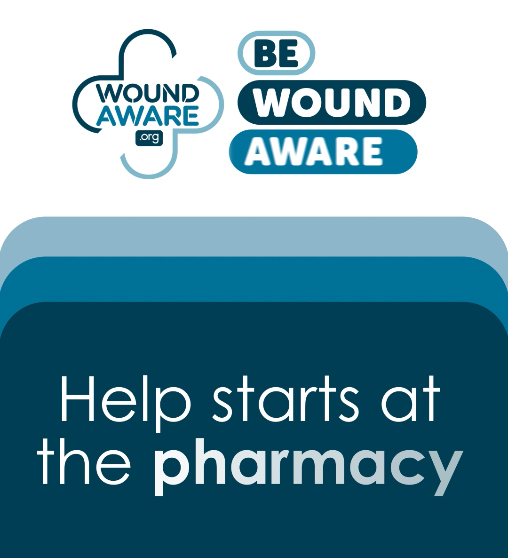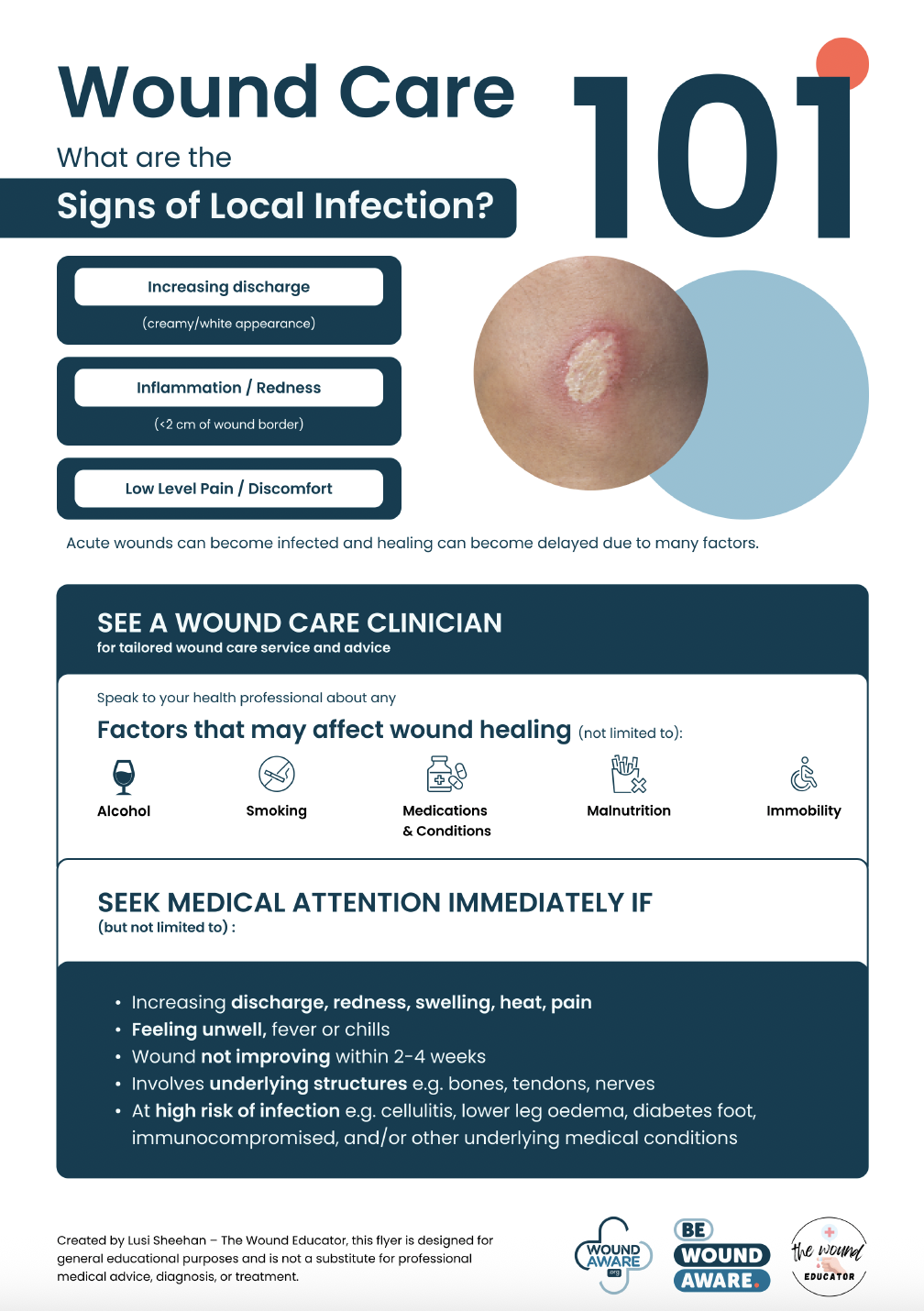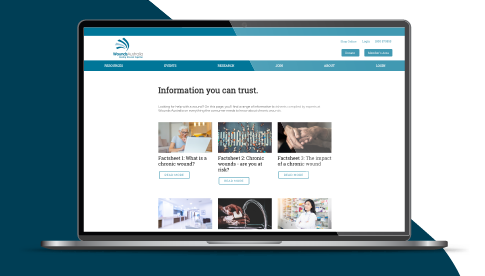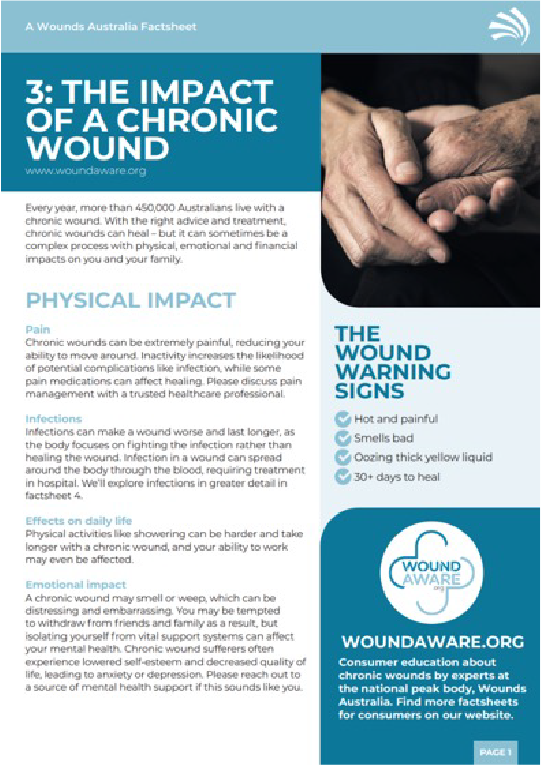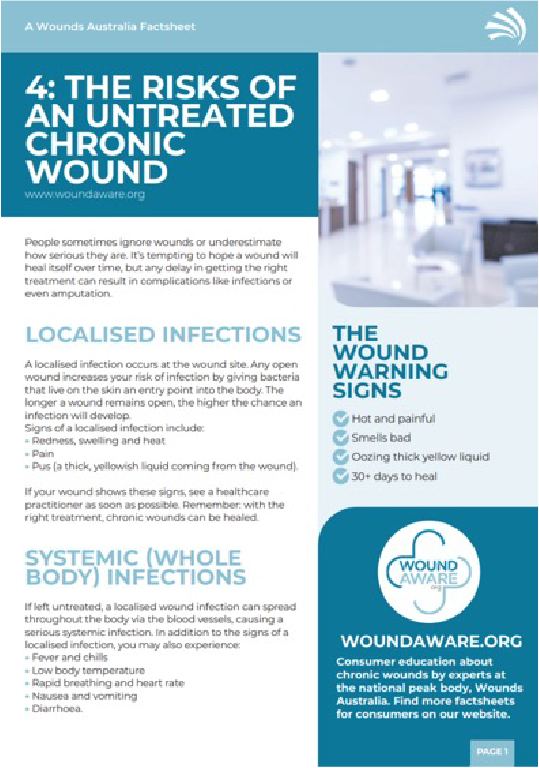Wound Awareness Week 2025 – Be Wound Aware: Wounds Affect Every Body
From 1–7 September 2025, we invite everyone to join the conversation about wound prevention, care, and healing. Chronic wounds affect people of all ages and backgrounds, but they often go unnoticed or untreated for too long. This year’s theme, Be Wound Aware: Wounds Affect Every Body, is a call to action – learn the signs, seek help and advice early, and support people living with wounds. Together, we can raise awareness, break the stigma, and improve outcomes for individuals and communities across Australia.
Wound Awareness Spotlight:
Supporting People with Acute Wounds in the Community Pharmacy with ‘The Wound Educator’ Lusi Sheehan
Every day across Australia, people walk into their local pharmacy seeking help for cuts, blisters, grazes, burns or skin tears. These are often minor wounds – but if not managed appropriately, they can escalate into serious health issues.
During Wound Awareness Week, Wounds Australia is shining a light on this critical group and the vital role that pharmacists play in early wound care, complication prevention, and community education.

Why Pharmacy-Based Wound Care Matters
Community pharmacies are often the first point of contact for people with acute wounds, especially due to their convenience, accessibility, and affordability.
- Monitor healing progress
- Offer safe, evidence-based advice
- Identify early signs of infection or delayed healing
- Refer to GPs or specialists when needed
- Promote wound prevention and general health
Early intervention is key. Even simple wounds can deteriorate—especially in older adults or people with chronic conditions such as diabetes, poor circulation, or reduced mobility.

Dispelling Wound Myths
Outdated wound beliefs can delay healing or even cause harm. Let’s look at some of the common misconceptions:
- “You should let the wound dry out and scab”
- “You need to put antiseptic on every wound”
- “Use antibiotics for all infected wounds”
Instead, best practice recommends cleansing, assessing the patient and the wound, covering with appropriate dressing(s), and monitoring – with referral where indicated.
A Window of Opportunity
Pharmacists can offer timely first aid, dressing advice, and referrals, helping to prevent minor wounds from becoming chronic. This relieves pressure on GPs, reduces hospitalisations, and improves health outcomes – particularly in rural or resource-limited settings.
Some populations are at higher risk of others and may need advice more often, including:
- Older adults (who may be frail or malnourished)
- People with diabetes or cardiovascular disease
- Those on medications that impair healing (for example corticosteroids or NSAIDs)
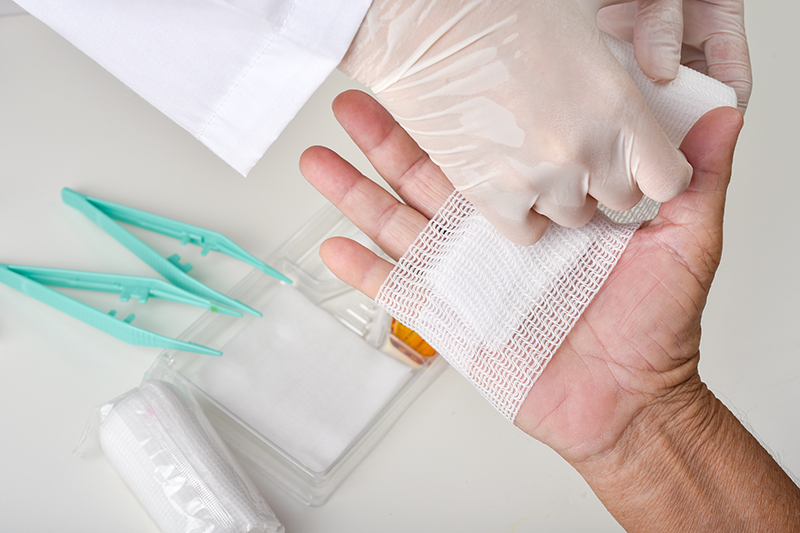
Trusted Advice Matters
While many turn to online sources, face-to-face guidance from health professionals remains more reliable – especially for older people or those with low health literacy. Pharmacists and allied health professionals can enhance this by:
- Using plain language
- Providing written or visual instructions
- Referring when red flags arise
Tips for Acute Wound Care in the Community
- Clean the wound gently
- Keep the wound moist and covered with a suitable dressing
- Watch out for signs of infection: redness, swelling, pus, increased pain, or fever
- Support healing with advice about good nutrition through diet (protein, vitamin C, zinc)
- Maintain blood glucose control if the patient has diabetes
- Encourage regular movement and stopping smoking
- Review medications for any impact on skin or healing
A Real-World Difference
Lifelong surfer Tony sustained a cut on his ankle while out on the water, and even though care was taken to clean and stitch the injury alongside a course of antibiotics, Tony’s wound developed cellulitis.
With the infection (caused by a marine bug) dangerously close to the bone, specialised wound management was needed. Recovery took a toll on Tony’s mental health, but with mental and physical support from Port Macquarie Wound Clinic, Tony is healed and back in the water.
Tony’s story is one of many that highlights the potential for wounds to turn into serious conditions, and the positive good wound care can make.

Working Together for Better Healing
Let’s empower our community with accurate information, early care, and confident self-management to prevent chronic wounds and promote healing.
Why Pharmacy-Based Wound Care Matters
Check out our new resource from The Wound Educator –
‘Wound Care 101’ Quick Reference Guide for the Community
Wound Resources
We have great resources to help boost your knowledge about wounds, the risk factors for chronic wounds, self-care, and sources of professional advice.
These factsheets are fantastic tools to get you up to speed and wound aware and you can download our next two factsheets for free today!
Who is Wounds Australia?
Wounds Australia is the national peak body for the prevention, treatment, management, and healing of wounds. We work to ensure patients receive the best quality care possible and, even more importantly, to minimise unnecessary suffering and expense by preventing chronic wounds from occurring in the first place.

Coming soon: tips, tools & personal stories
Over the next few issues, you’ll get:
- Wound care dos and don’ts
- Where to seek help
- Personal stories that hit home
- Advice for carers and families
- Free downloads and shareables
Follow us on social media!
Stay up to date with Wound Aware across Instagram, Facebook and TikTok.
Don’t miss out – sign up here to never miss an issue! Sign up
You’re leaving our site
The link you clicked will take you to an external website.
Alternatively you can close this popup and continue on our site.

